Thursday April 2, 2020
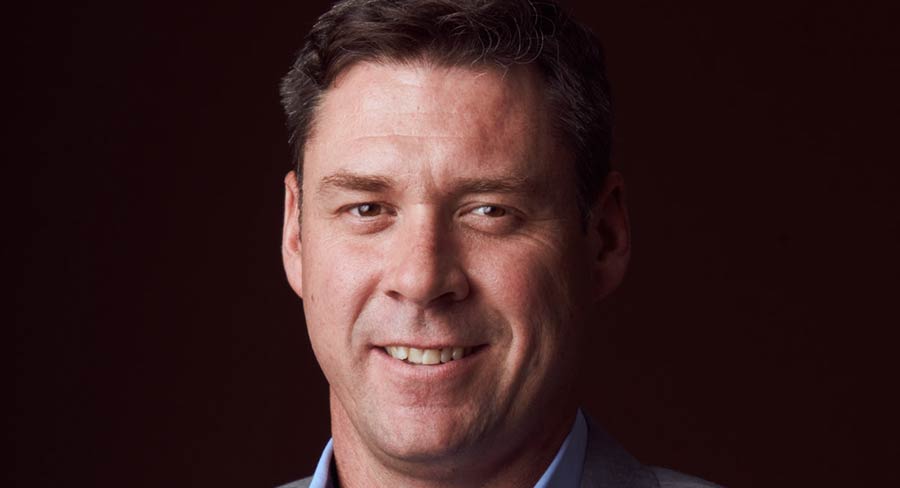
Bauer Media NZ is closed permanently, looking to sell brands
The closure brings to an end many decades of publishing in New Zealand and affects all staff, reports The New Zealand Herald.
A staffer spoken to by the Herald said they were “devastated” and “didn’t see it coming”.
Chief executive Brendon Hill told staff the news this morning in a company-wide Zoom meeting.
In a statement, Bauer said the closure was due to the “severe economic impact of Covid-19”.
Accounting firm EY has been appointed to work alongside Bauer New Zealand to facilitate an orderly wind-down of the business.
“This is a devastating blow for our committed and talented team who have worked tirelessly to inform and entertain New Zealanders, through some of the country’s best-loved and most-read magazines,” Hill said.
“We understand the New Zealand Government’s decision to move to Covid-19 Level 4, but it has put our business in an untenable position. Publishing in New Zealand is very dependent on advertising revenue and it is highly unlikely that demand will ever return to pre-crisis levels.”
The Herald continued: Bauer carried out an urgent review of its New Zealand operations and considered all options to keep part or all the business open, including engaging with the New Zealand Government, Hill said.
“An active search is underway to find buyers for our New Zealand assets, including our many iconic titles, however, so far an alternative owner has not been found.”
There is speculation now surrounding the future of Bauer Media in Australia. Not only does it seem unlikely that it won’t take the Pacific titles, there is uncertainty about the scale of operations in Australia.
However overnight in Germany, Bauer Media managers Heribert Bertram and Andreas Schilling said their business was well-armed against the corona crisis.
Germany’s Kress News has reported the majority of the employees of the Bauer Media Group were transferred to the home office at short notice to protect their health. Nevertheless, the creation of all journalistic products runs at a consistently high level – including editorial adjustments of the content to the current situation and the needs of the target groups. Printers for the Bauer Media Group had managed to avoid bottlenecks – they produced continuously and on time. The logistics also work, so that the sales outlets could be reliably supplied.
Bauer Germany is currently not losing significant retail sales. Heribert Bertram, managing director Bauer Sales and member of the German publishing board, said: “We notice more than ever in the loyalty of our readers: We reach people with our content and are close to the reality of their lives. Limiting losses in retail sales is also due to the structure of our portfolio and sales channels.”
According to Bertram, 60 to 70 percent of Bauer Media Group’s titles are sold through food retailers.
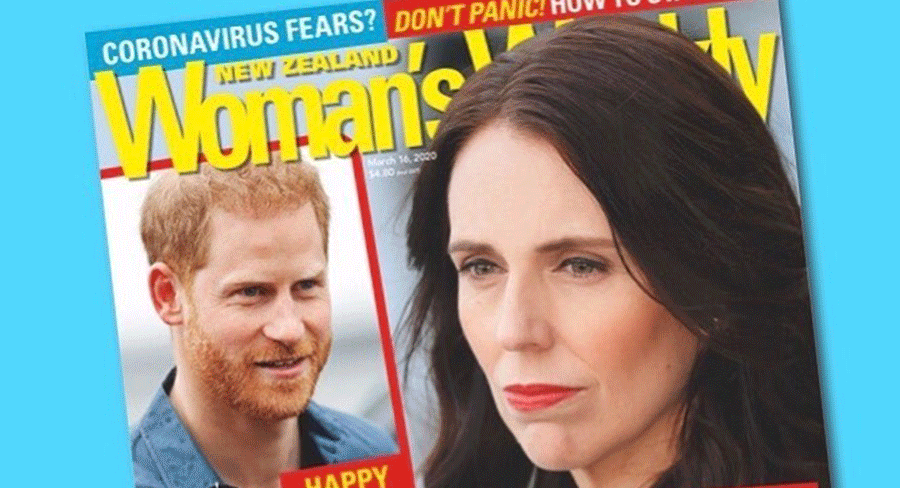
Gone! Bauer Media closes New Zealand business as of today
Bauer Media today announced its intention to close its publishing business in New Zealand due to the severe economic impact of COVID-19. The closure brings to an end many decades of publishing in New Zealand and affects all staff.
Bauer Media NZ publishes entertainment, lifestyle and current affairs titles including the NZ Listener, Woman’s Day, New Zealand Woman’s Weekly, North and South and Next, along with a digital network.
All New Zealand Bauer staff have been advised this morning that the business is no longer viable and that it intends to close.
EY has been appointed to work alongside Bauer New Zealand to facilitate an orderly wind- down of the business.
Brendon Hill, ANZ CEO said: “This is a devastating blow for our committed and talented team who have worked tirelessly to inform and entertain New Zealanders, through some of the country’s best-loved and most-read magazines.”
Magazine publishing in New Zealand is currently suspended as part of the New Zealand Government’s decision to move to the COVID-19 Level 4 restrictions. Mr Hill said: “We understand the New Zealand Government’s decision to move to Covid-19 Level 4, but it has put our business in an untenable position. Publishing in New Zealand is very dependent on advertising revenue and it is highly unlikely that demand will ever return to pre-crisis levels.
In response to the situation, Bauer carried out an urgent review of its New Zealand operations and considered all options to keep part or all of the business open, including engaging with the New Zealand Government. Mr Hill said: “An active search is underway to find buyers for our New Zealand assets, including our many iconic titles, however, so far an alternative owner has not been found.”
Bauer Media Group has confirmed its intent to close the New Zealand business to its staff and that funding will be provided to enable all staff to be paid their full redundancy and leave entitlements.
Mr Hill concluded: “I would like to recognise the impact that this decision will have on our suppliers, customers and the wider publishing industry. This is a very difficult time for the entire media industry.”
The decision to close the business is effective as of 2 April 2020.
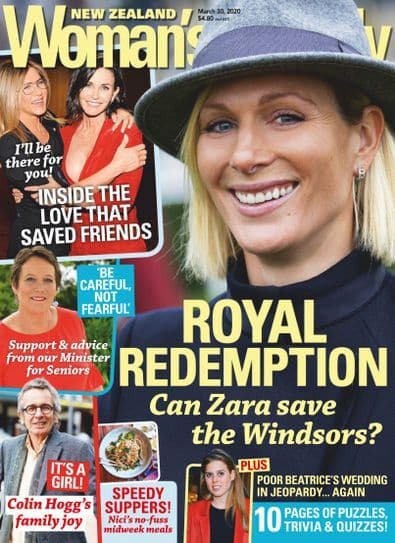
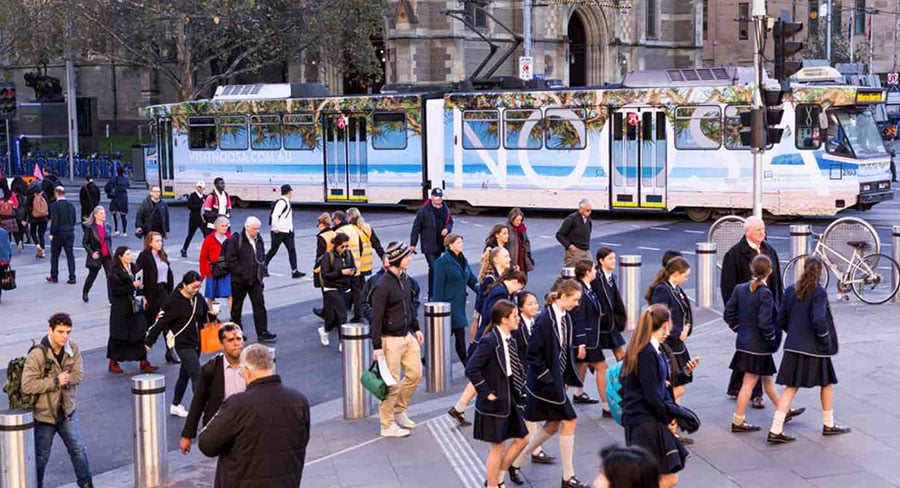
SMI warns disruption to ad spend will hammer March investment
The Australian media agency market has reported a lower decline in February, suggesting the market was beginning to stabilise before the COVID 19 crisis further hurt confidence, as total bookings were back 5.3%.
All major media reported reduced February bookings with the lowest declines were seen in the media of Digital (-0.9%) followed by TV (-1.6%) and then Radio (-5.4%).
There was growth among some key media sectors with Metropolitan TV delivering a 1.9% increase in spend (mostly due to Nine’s Australian Open finals broadcast occurring in February instead of January as was the case last year). The Regional Radio sector grew bookings 7.8%; Programmatic rebounded from the lower demand it’s experienced this financial year and was up 9.8% in February and the value of advertising to Social Sites grew 6%.
SMI AU/NZ managing director Jane Ractliffe (pictured) said it was again a contrasting story in New Zealand as ad spend in that market grew 2.4% in February.
“New Zealand’s media has now reported two consecutive months of growth so is entering their coronavirus lockdown in a stronger position, and we can also see in our NZ future pacing data the market will also be strong in March,” Ractliffe said.
“But at least in the Australian market we can see the decline has been reducing, with this 5.3% fall below the 6.1% decline we’re reporting across the eight months of this financial year.”
Ractliffe said with the coronavirus impacting all markets, these were likely to be the last “normal” results for some time.
“Already we can see in Australia that in March there’s been large increases in spending from the categories that are more likely to benefit from a lockdown environment, such as In Home Entertainment, Food, Toiletries/Cosmetics and Health Care,” Ractliffe said.
“But the market is obviously making huge adjustments given major changes such as the loss of sporting events and the large movement of audiences, so we will continue to deliver our Special Ad Spend Updates to get the latest ad spend trends to the market as soon as possible.’’
Meanwhile, SMI has also created this month an Industry Media Index, pulling together ad spend data from media industry associations to show the total value of the Australian advertising market hit $18 billion in CY2019.
And the combined Agency and Direct ad spend figures include for the first time ad spend for the catalogue, inserts and direct mail media as SMI has entered an exclusive agreement with the Real Media Collective (the former catalogue and printing industry associations) to collect and publish their ad spend data. Across all major media, they have emerged as the fourth largest with $1.4 billion in ad spend in CY2019.
But when the Industry Media Index is viewed on a like-for-like basis (with RMC data removed) the total market is back 1% to $16.6 billion in CY2019.
“Given the drought, fires and floods last year it’s unsurprising to see the value of the total Australian market fall in 2019 as these events always affect business confidence which in turn hurts advertising demand,” Ractliffe said.
“In these difficult times we’re still trying to deliver improved advertising metrics so it’s been fabulous to work with the Real Media Collective to collect catalogue, inserts and direct mail ad spend and we hope to continue improving this service moving forward.”
2019 Industry Media Index
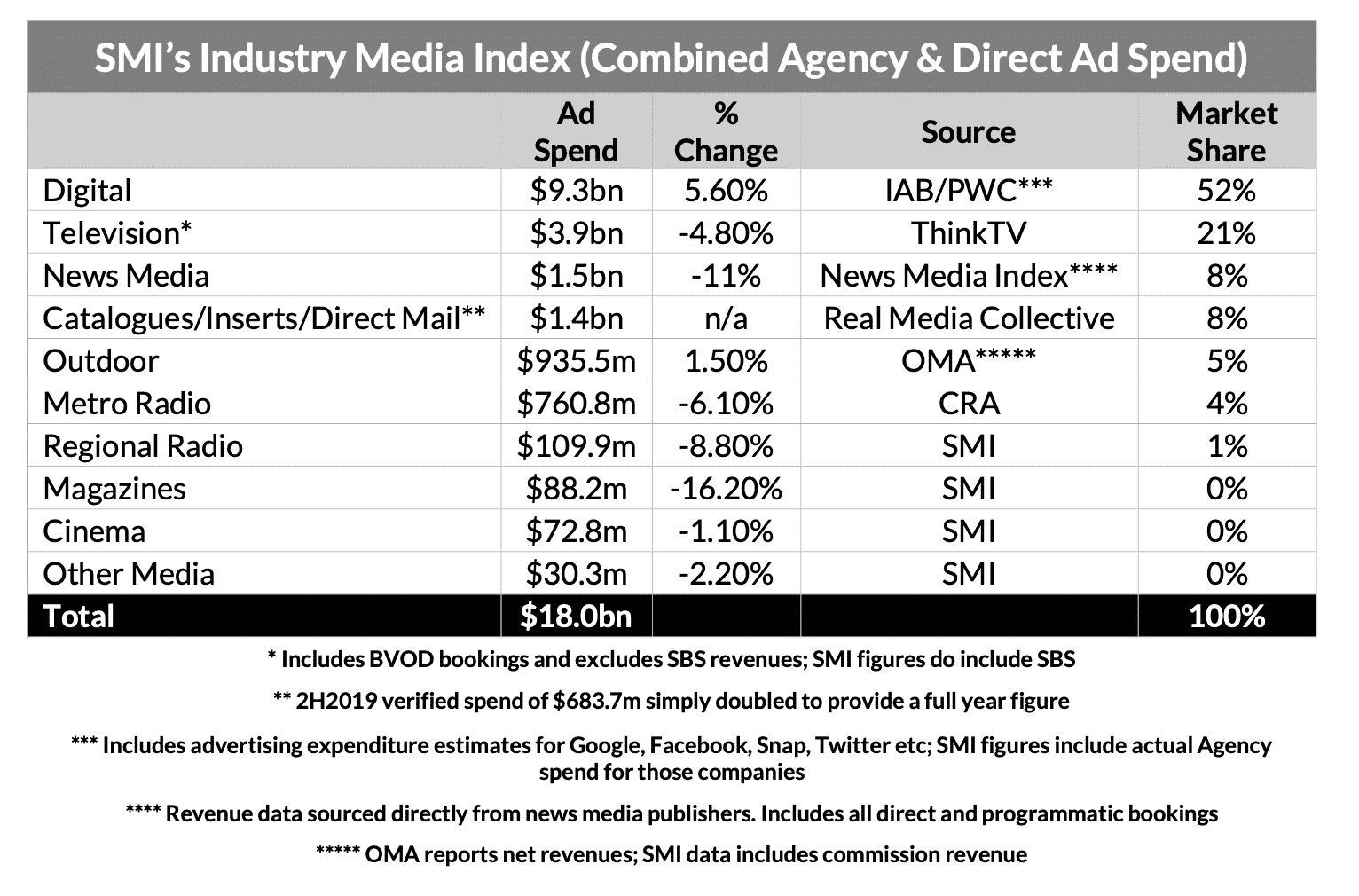
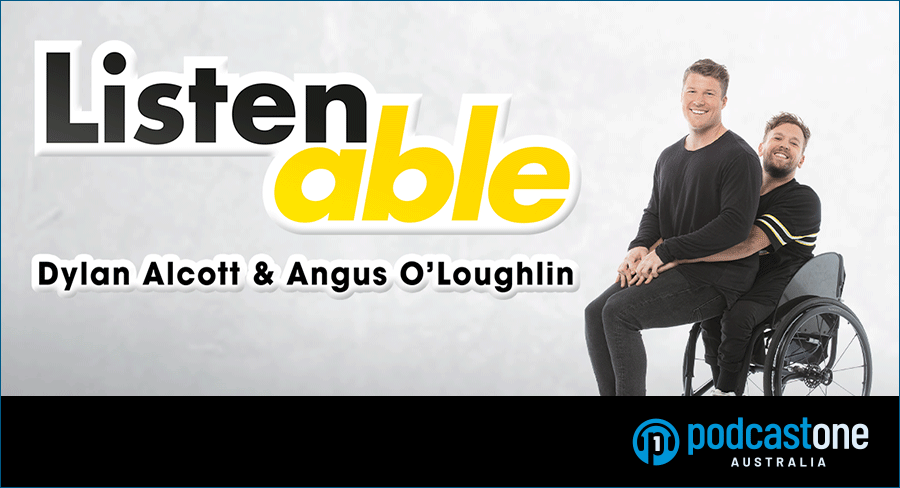
PodcastWeek: Audiences up, Sarah Grynberg, Quizicle Kids, Wil’s top 5
Podcast listens grow in Australia during March
To call March an unusual month would be a massive understatement, but the disrupted lifestyles haven’t stopped people from podcasting. Two of Australia’s biggest podcast platforms have given Mediaweek an insight into just how much they have grown.
SCA podcasting (original and catch up radio podcasts) has increased by 55% month-on-month in March.
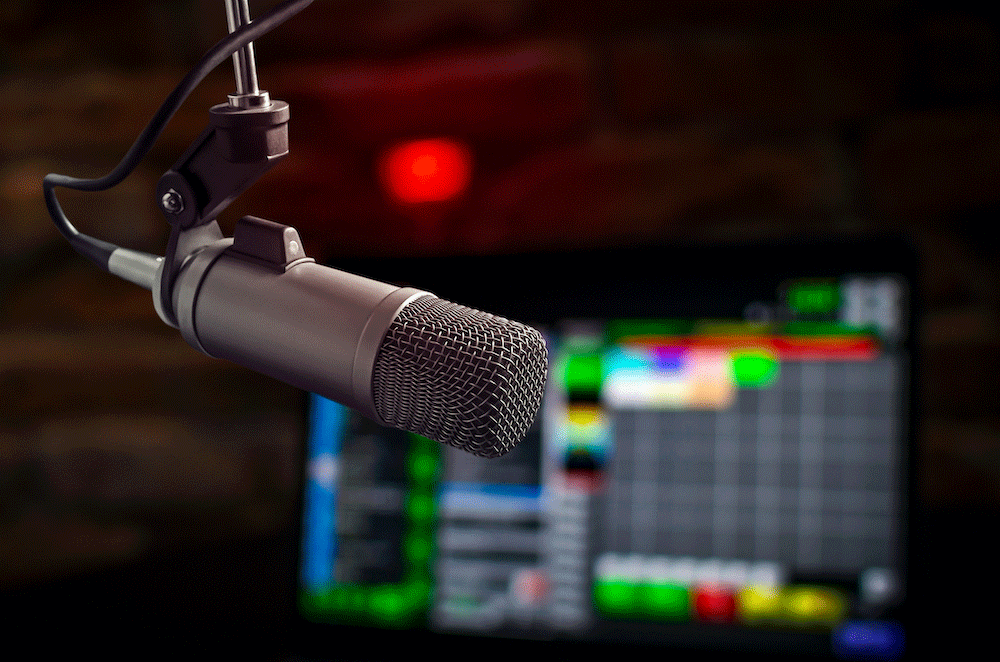
Helping fuel those increased numbers has been Hamish and Andy who have had their biggest podcast download month ever in March.
Grant Tothill, SCA head of podcasting, told Mediaweek: “It’s great to see podcast listening increasing month on month. As more and more people remain isolated, and as we all try to maintain a sense of community in these challenging times, the search for news, information and entertainment from trusted voices across both radio and podcasting will play an important role in helping people feel connected.”
Meanwhile Acast has reported on global increases and Australian growth. The company told Mediaweek that the weekend of March 21-22 was its biggest ever with listens up 7%, equivalent to more than 750,000 additional listens in just two days. This number is reflected in Australian listens which saw a near 5% increase over the same two-day period.
Acast data shows a continual increase in the number of podcasts [from all publishers] covering the coronavirus (COVID-19) with more than 1,400 podcast episodes now available since January 22. Podcasts which reference “corona” or “covid” in the episode title have been downloaded more than 27.5 million times globally to date.
Henrik Isaksson, managing director at Acast Australia and New Zealand, said: “The numbers reflect a consistent upward trend in podcast listenership, both globally and locally here in Australia. Beyond numbers, it’s clear that Aussies are turning to podcasts to help stay informed and entertained during these troubling times – be it the in-depth reporting of The Guardian Australia’s Full Story or the return of Meshel Laurie’s much-loved Nitty Gritty Committee. For advertisers, podcasting is an essential medium right now.”
Sarah Grynberg’s Navigating Uncertain Times
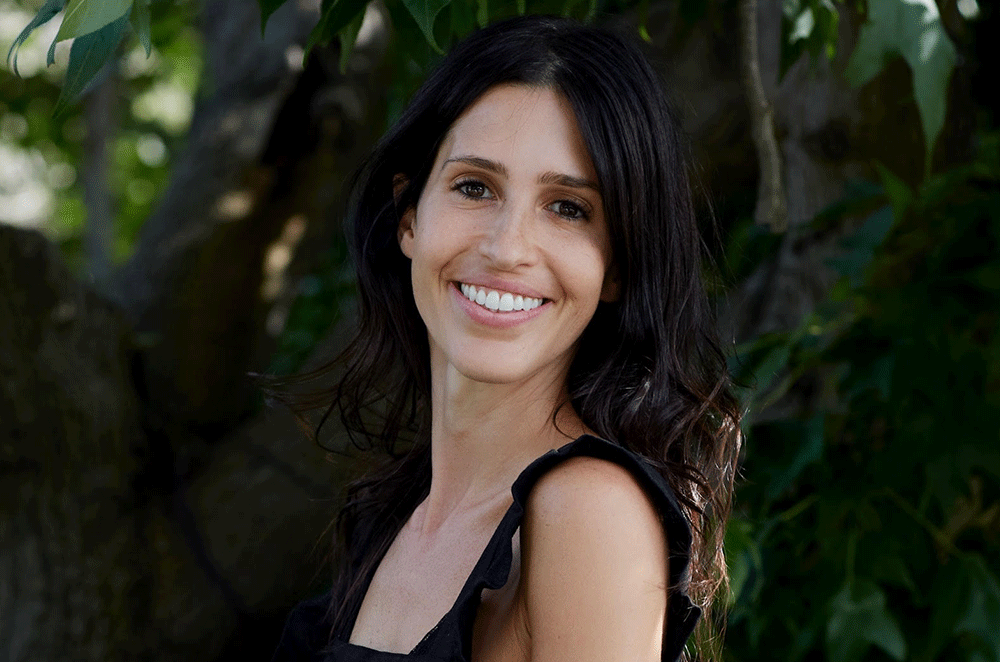
PodcastOne contributor Sarah Grynberg has compiled a special episode of A Life of Greatness to provide listeners with the wisdom and resources needed to embrace these uncertain times. Direct from the world’s best thought leaders, entertainers and NYT bestselling authors, listeners can learn how to navigate the unknown, find compassion and love instead of fear and become conscious of negative thought patterns.
“These are the most inspiring conversations I have had with people over the last three series of my podcasts,” Grynberg told Mediaweek. “I speak to people like Dr Joe Dispenza, Dr Bruce Lipton, Kate Langbroek and others. I have taken key topics we discussed so people can learn how to cope and stay mentally fit during this time. Things like becoming aware of negative thought patterns, choosing love over fear, choosing positive thoughts and why things like meditation can be so important right now.”
Grynberg called it a feel-good episode that equips people with tools when they are really needed. “The amount I have learnt from all the people I have interviewed is extraordinary and I feel so blessed. Repacking these highlights has been a real refresher for me and it’s great to be able to share them again with the audience.” In particular Grynberg enthused about spreading the thoughts again of best-selling author and world-renowned Buddhist teacher Sharon Salzberg. “Some of what she says is so beautiful.”
Included in the podcast are clips of what guests tell Grynberg are their ideas of a “life of greatness”.
Meanwhile Grynberg has been busy recording guests for the fourth season of A Life of Greatness. She has also just guested on the PodcastOne series Health Hacker with Adam MacDougall.
Listen to A Life of Greatness here.
These are good times for a podcast quiz
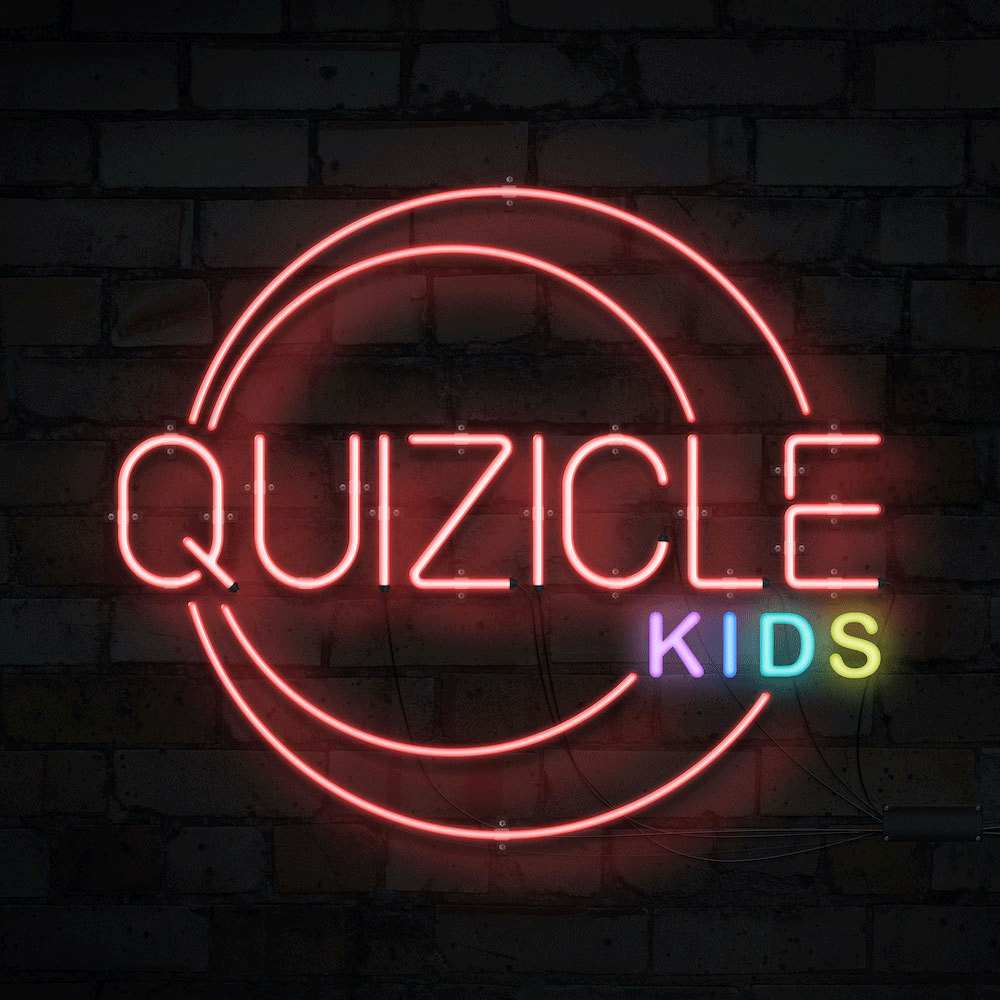
Nova Entertainment has this week launched an original, trivia-based podcast tailored for children.
Hosted by comedian Lindsay Webb, Quizicle Kids allows the family to be involved in this play-along podquiz. With questions designed to challenge children’s mathematical, spelling, popular culture and general knowledge skills, Quizicle Kids promises something for everyone. Episodes are kept to under five minutes.
Lindsay Webb is a comedian who has supported many Australian comedians including Wil Anderson and Jim Jefferies as well as Nova’s Kate, Tim & Marty drive show co-host Marty Sheargold on his recent national comedy tour.
You can find Quizicle Kids on Acast, Apple, Spotify and Instagram.
Wil Anderson on working hard
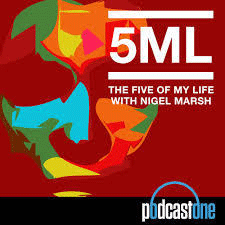
PodcastOne has just released an episode of Nigel Marsh’s Five of My Life podcast with Wil Anderson as a special guest. During the interview Marsh asks Anderson about being a hard worker.
“I have never thought of myself as a hard worker,” Anderson replied. “Nobody ever told me how hard, or not, you are meant to work. I think I am often quite lazy and I know the days I waste my time.”
Anderson is always a great podcast guest, and his recording with March is the longest-ever Five of My Life. Anderson didn’t enjoy trying to find his favourite things, but he did. The book he chose was Good Omen by Terry Pratchett and Neil Gaiman, the movie was The Princess Bride and Anderson reveals one area of a creative life he would like to explore. Anderson also talks about how he manages revealing parts of his private life and what his partner thinks about that.
Listen to Five of My Life here.

https://www.podcastoneaustralia.com.au/podcasts/listenable
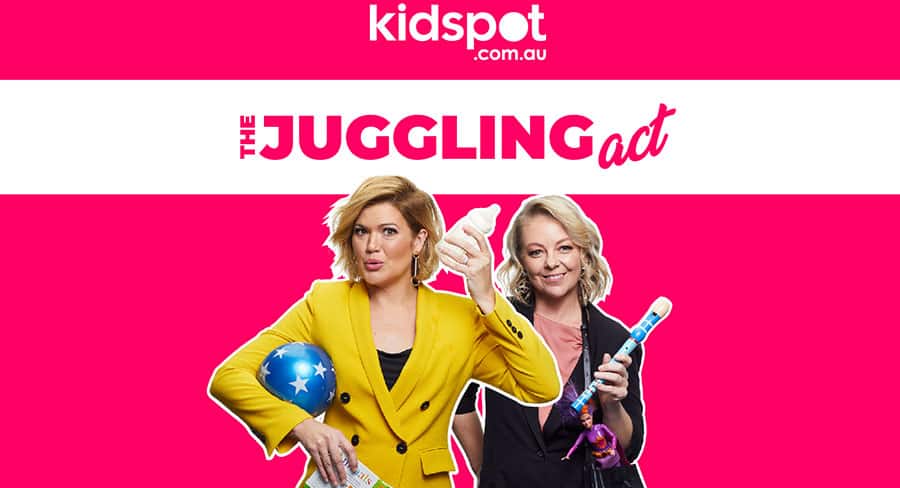
WHIMN launches new weekday short form podcasts
Body+Soul’s Healthy-ish and Kidspot.com.au’s The Juggling Act are both producing daily bite-sized podcast episodes for their audience.
Body+Soul’s daily Healthy-ish podcast, presented by podcast producer and journalist Nina Young, delivers five-minute episodes with a daily dose of inspiration, tangible tips and expert-led advice to help its audience feel more motivated and provide a sense of community to those struggling with physical isolation.

Kidspot.com.au’s The Juggling Act podcast, presented by WHIMN’s executive editor Melissa Wilson, is being recorded each weekday from her kitchen table to provide working parents with guidance, advice and laughs to help them stay supported, sane and keep the kids entertained.
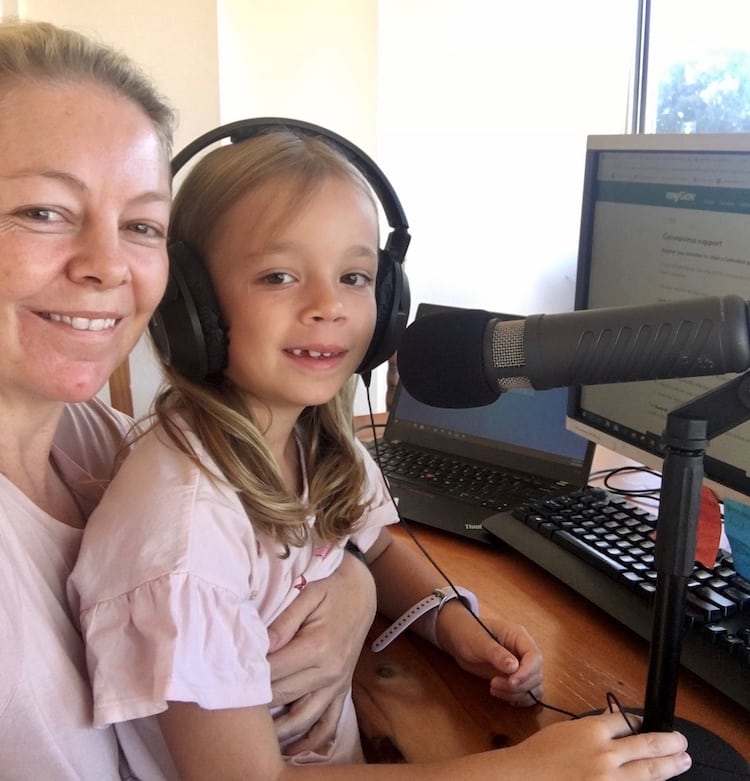
Melissa Wilson and her daughter in The Juggling Act home studio
WHIMN’s general manager Georgi Pell said: “In this time of social distancing and isolation you can feel pretty alone. That’s why we’ve reshaped our audio strategy to deliver weekday episodes of these popular podcast series to support and reassure listeners.
“Both bodyandsoul.com.au and kidspot.com.au have had their highest traffic days on record in the last week, their audiences are actively seeking information, support and connection. Our new podcast offerings respond daily to the audience trends we are seeing from the most read content, social community feedback and conversations with consumers.
“The weekday version of what is usually our fortnightly drop of the Healthy-ish podcast is a check-in with the Body+Soul audience designed to bring a little sunshine and sanity to their day; and the daily episodes of The Juggling Act are from the trenches, or rather from Melissa’s kitchen table, where like many of us right now, she is working, juggling two children and homeschooling while trying to remain calm and positive.
“For just a few minutes each day they both go a long way to helping our audience feel more connected at times like these.”
The podcasts are created by News Corp Australia’s podcasting arm, NewsCast.
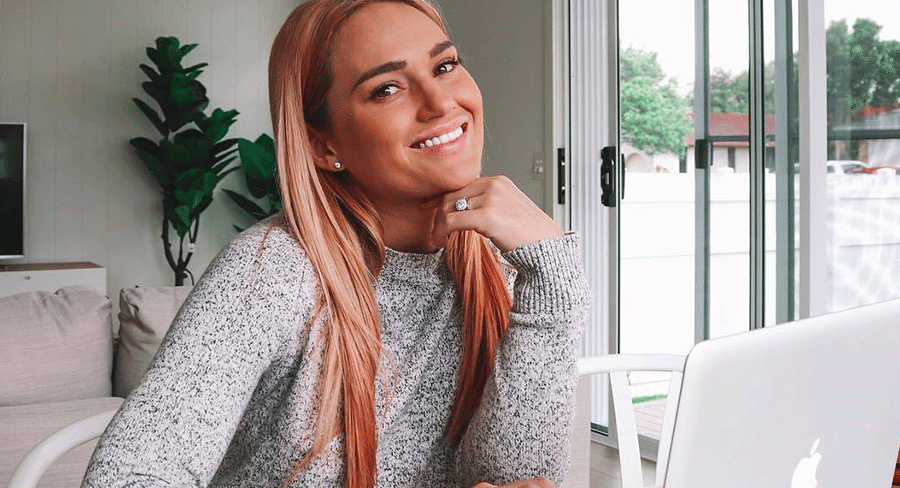
Podcast Ranker: SYSK still #1, Georgie Stevenson new original
The latest Podcast Ranker chart sees an import again sitting at the top. And it’s no surprise that the treasure trove of information in the vaults of the Stuff You Should Know podcast keeps it at #1. One of its more recent episodes was How COVID-19 Works. SYSK is represented in Australia by ARN’iHeartPodcast Network.
The highest new entry from an Australian original is another title from ARN/iHeartPodcast Network – lawyer-turned-entrepreneur Georgie Stevenson’s Rise & Conquer podcast sits at #31.
The Ranker measures the top 100 most downloaded podcasts from participating publishers during the 17 February through 15 March 2020 reporting period. The Ranker has been expanded to include an All-Australian Top 100 category, providing advertisers with insight into the ranking of local, original content that is commissioned by Australian publishers and consumed by listeners located in Australia.
Eleven new entities debuted in the Top 100 Podcast ranker this reporting period, including Equity Mates Investing Podcast, The Rise & Conquer Podcast, and Not Here to Make Friends. Additionally, Stuff You Should Know took the #1 spot on the principal Top 100 Ranker as the most downloaded podcast in the region from 17 February through 15 March 2020, while From The Newsroom took the #1 spot on the All-Australian Top 100 Category Ranker.
The Top 100 podcasts in this reporting period account for a new high of 19.1m downloads in total.
Participating publishers in the Australian Ranker include Southern Cross Austereo, News Corp Australia, Nova, Schwartz Media, TOFOP Productions, SEN / Crocmedia, The Parent Brand, Australian Radio Network, and Nine Radio, ARN/iHeartMedia and Stitcher.
 Loading...
Loading...—
Top Photo: Rise & Conquer podcaster Georgie Stevenson
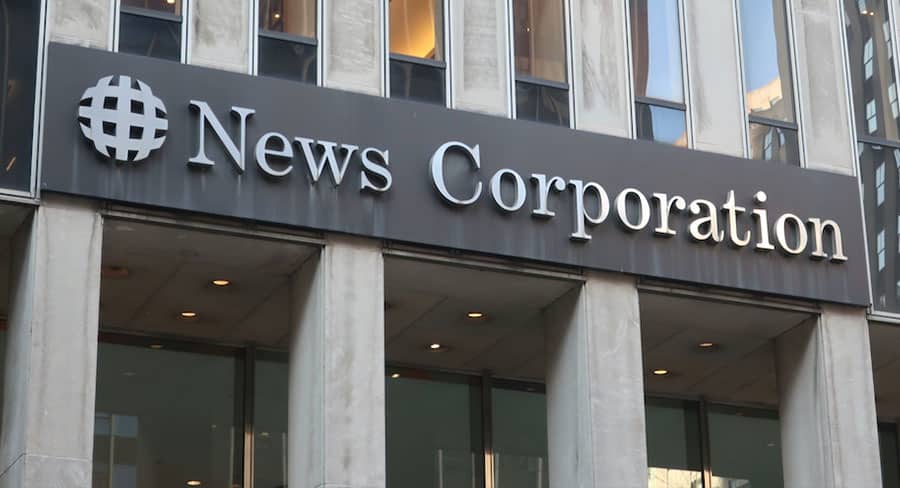
Print shutdown: News Corp community titles digital only for now
The community mastheads will continue to publish digitally with reporters and photographers expanding News Corp’s local news coverage for consumers across Australia.
News Corp Australasia executive chairman Michael Miller said the decision to suspend printing of its community newspapers was not taken lightly.
“The suspension of our community print editions has been forced on us by the rapid decline in advertising revenues following the restrictions placed on real estate auctions and home inspections, the forced closure of event venues and dine-in restaurants in the wake of the Coronavirus emergency,” he said.
News Corp will be offering community title readers the opportunity to take up a free 28-day digital subscription offer to allow them to access their local community titles online. The offer also allows access to the websites, apps and mobile sites of News’ metro mastheads – the Herald Sun, The Daily Telegraph, The Courier-Mail and The Advertiser.
Miller stressed that News Corp remained committed to serving Australia’s many communities with trusted, professional journalism and as consumers increasingly turned to digital for local news, News would be increasing and developing its community coverage.
He said that during the COVID-19 emergency, News Corp’ main priority was to preserve jobs and to best position its business to counter the crisis.
“During this unprecedented time it is imperative that we reduce costs while continuing to keep the community informed and doing all we can to retain jobs. The print suspension will allow us to assess the shape of the market itself and future conditions, taking into account how the Coronavirus situation unfolds in the coming period,” he said.
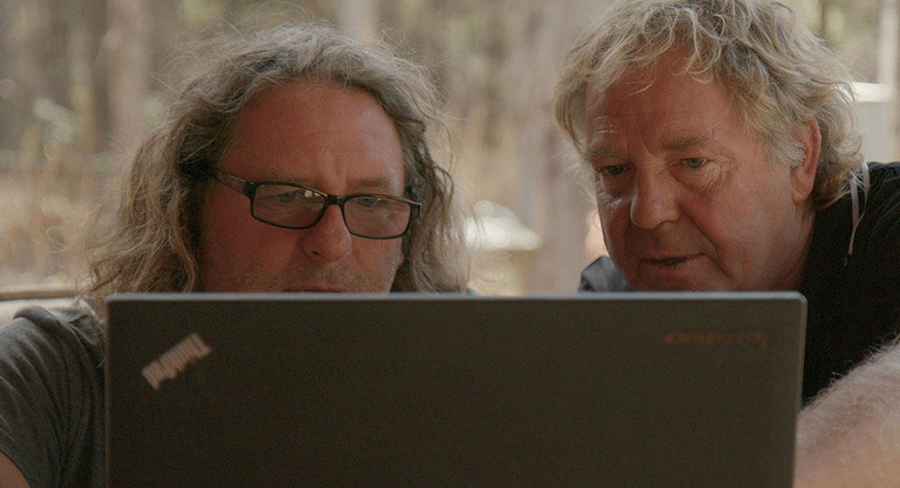
Screen Australia and Vice announce Pitch Australiana winner
Pitch Australiana is an annual competition that provides early-career Australian filmmakers an opportunity to collaborate with Vice in telling a story that has been overlooked by mainstream media.
The creators will receive $50,000 in production funding for a short form documentary commission to be released through Vice’s global digital network and broadcast on local TV channel SBS Viceland.
Searching for the Tassie Tiger will be directed by Naomi Ball and produced by David Elliot-Jones and Louis Dai.The documentary will follow Neil Waters, a middle-aged gardener in remote north-east Tasmania, as he quits his day job and commits his life’s savings to search for the Tasmanian Tiger. And will explore new evidence and a growing civilian movement that are challenging the long-held belief that Tasmanian tigers are extinct.
Director Naomi Ball said, “We’re thrilled that Vice and Screen Australia have made it possible for this story to become part of the Australiana canon. Searching for the Tassie Tiger will be an absorbing adventure through remote and rugged landscapes led by Australia’s most dedicated tiger believers. Within the trail cam footage and beneath the scat samples, we’ll be looking not only for this ancient marsupial beast, but also for the hope we all need, as we face up to our destruction of the environment.”
Head of Documentary at Screen Australia Bernadine Lim said, “Naomi Ball and David Elliot-Jones’ pitch at this year’s competition really stood out to us. Whilst the mystery around the Tassie tiger knows no bounds, their promise of a special insight into the grassroots community of Tassie tiger believers with great characters was very compelling. I look forward to seeing this project on Vice.”
Jess Langley, Executive Producer at Vice, said “We’re thrilled to work with Naomi and David to bring Searching for the Tassie Tiger to Vice’s audiences. It’s sure to be met with enthusiasm both locally and internationally.”
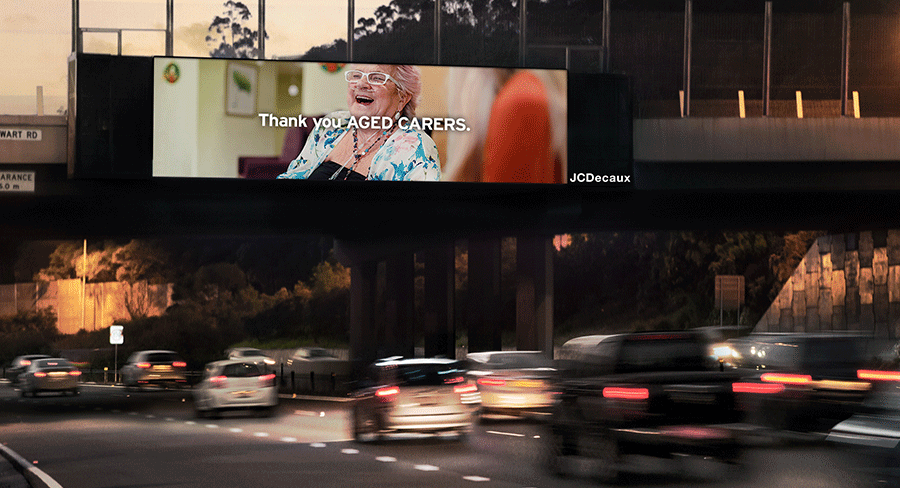
JCDecaux launches ‘Thank You’ Out-of-Home campaign
JCDecaux will host the series of community messaging campaigns across its large format and Smart Frame digital and transit platforms around Australia, in addition to providing support for Government health campaigns.
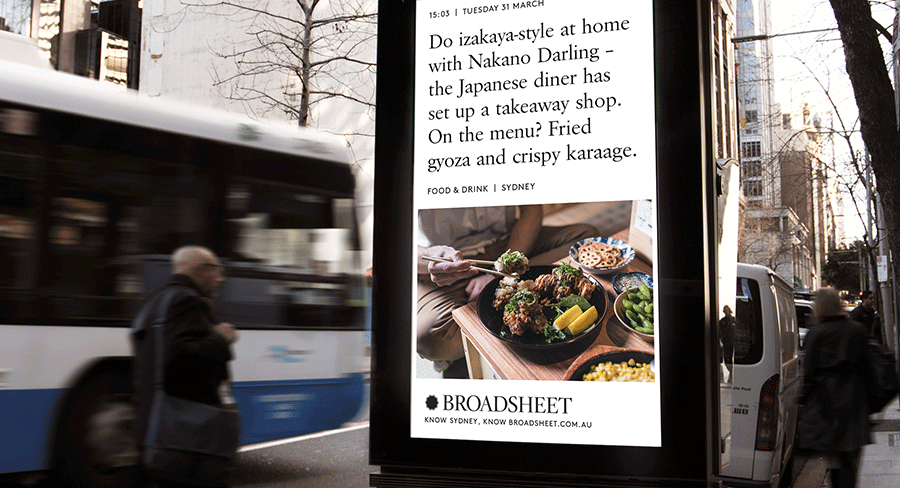
The “Thank You” campaign, created by JCDecaux’s in-house creative team thanks those people in essential services, working to help Australia get through the fight against COVID-19 such as Doctors, nurses, pharmacists, teachers, aged care workers, childcare workers, farmers, supermarket and warehouse workers.
JCDecaux ANZ CEO, Steve O’Connor, said: “In a time of tremendous upheaval and uncertainty for us all, there are many Australians working night and day to keep us cared for and making sure we have access to necessary services, and of course our medical professionals – true heroes, facing great challenges and potential threats to their own health to keep us safe. Our hope is they see this campaign on their way into work and home again, and they know that we recognise and applaud their contributions.”
JCDecaux has also partnered with Broadsheet Media to promote local businesses, such as cafes and restaurants, who are currently experiencing significant strains on their businesses due to restrictions to their trade. The Out-of-Home campaign provides communities with information about their new offerings of take-away and meal delivery services.
Broadsheet Publisher, Nick Shelton, said: “We wanted to work with JCDecaux to help support Australia’s local restaurant and café sector during this tough time, so we have created a ‘Live List’ for each capital city detailing how our beloved cafes and restaurants are pivoting towards take out and ready to eat meals. Our goal is to create a centralised point where audiences can go to learn how they can support their favourite local businesses.”
The ‘Live List’ content will feature across JCDecaux Smart Frame digital panels in five capital cities via an API geo-targeted feed – ensuring that audiences within specific suburbs can receive content with relevant offerings from local businesses near where they live.
In addition, JCDecaux will support its charity partner RUOK? by promoting its ‘Stay Connected’ messages across its Australian transit network, encouraging communities to look out for one another and to remind us that staying connected leads to stronger mental health.
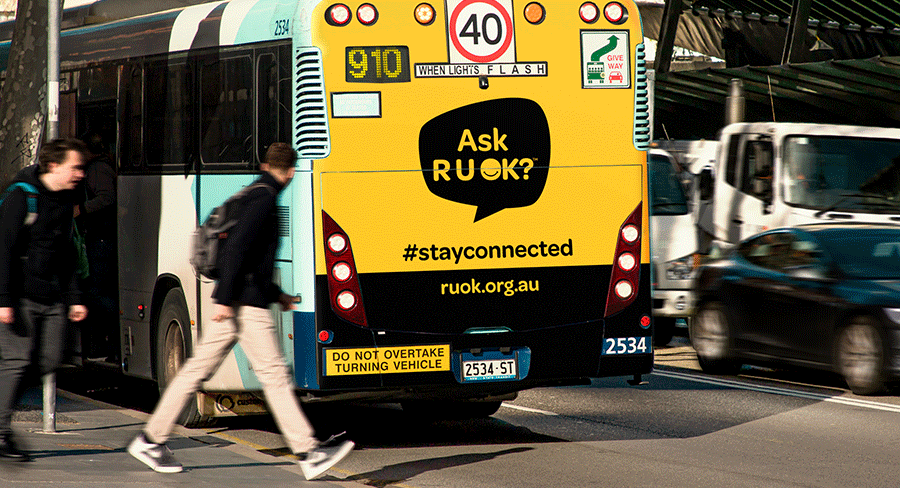
JCDecaux Chief Marketing Officer, Essie Wake, said: “JCDecaux connects organisations with communities, whether they are in the hearts of cities or deep in the suburbs. In these uncertain times, our ability to be a platform for good is at its most powerful – which is why we are carrying a number of important government health messages as well. Our role right now is to help connect, support and educate communities.”
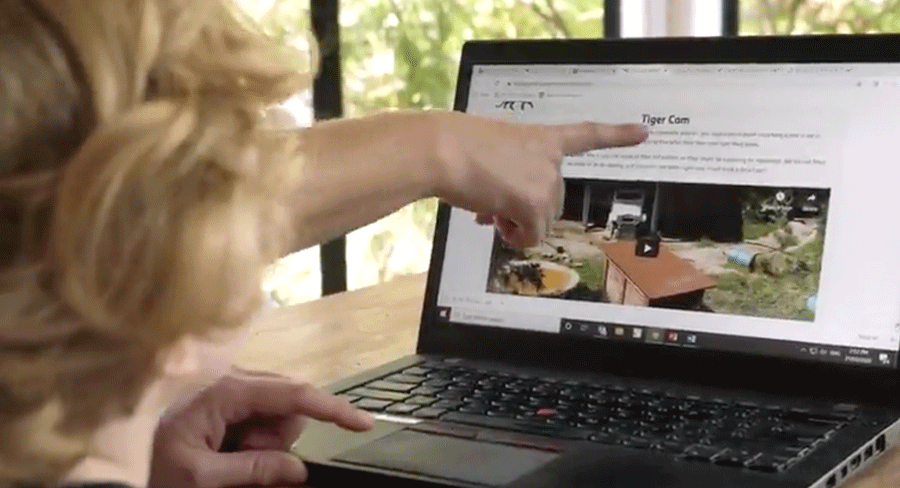
Zoo goes virtual as Taronga TV launches
Taronga TV will provide daily keepers talks and shows, 24/7 live animal streams,and behind-the-scenes sneak peeks . There will also be resources available for teachers and for parents who are home schooling.
Cameron Kerr, Chief Executive of Taronga Conservation Society Australia said: “Taronga has, and always will, be a critical part of the community and while temporarily we won’t be welcoming guests on site, we are so proud to continue to deliver some of the amazing stories from our two zoos right into your home.”
“There’s so much for guests to experience when exploring our two zoos, but there’s also so much that goes on behind-the-scenes that normally goes unseen. From watching how our keepers care for and form close bonds with their animals to the vital conservation work that helps safeguard some of our most precious native wildlife. This is our chance to share some great stories, like what goes on behind the doors of our two hospitals where are critical care work continues, while also providing entertaining and educating content for those at home.
“We’re so excited to keep people up to date on what’s happening at Taronga through Taronga TV before we welcome everyone back when our gates reopen again,” he said.
Environment Minister Matt Kean said: “During this challenging time while our kids (and big kids) are doing the right thing and staying at home, it is great that their visit to the zoo can still go ahead.”
“I hope everyone takes the opportunity to connect and share in the great stories that are Taronga’s unique wildlife. Taronga TV will keep the zoo’s magic alive for all to see.”
Taronga TV will be releasing new videos daily on Facebook, Instagram, YouTube and online via tarongatv.com.

TV Ratings April 1 Week 14 2020
Wednesday news bulletins
Seven News 1,285,000/1,162,00
Nine News 1,171,000/1,147,000
ABC News 981,000
7.30 859,000
A Current Affair 837,000
The Latest 541,000
Nine News special COVID-19 524,000
The Project 394,000/581,000
10 News First 523,000/310,000
Sunrise 354,000
Seven News at 4 287,000/294,000
Nine’s Afternoon News 271,000
Today 251,000
News Breakfast 246,000
The Drum 263,000
The Morning Show 221,000
SBS World News 201,000
ABC Late News 167,000
Today Extra 167,000
Nine: With no Married at First Sight, Nine’s share dropped 9.1 to 18.6%, although that was still enough to rank #1. Paramedics took the 7.30pm slot with 663,000 watching. Despite Eddie McGuire’s blow-up earlier in the night on Nine News Melbourne, Footy Classified did 138,000 with 108,000 in Melbourne.
Seven: The channel’s most-watched non-news show was Highway Patrol Special with 462,000. The Front Bar did 389,000 with 213,000 in Melbourne. Andy Lee returned from isolation and Fitzy was at home reporting on his isolation period. “Don’t fear it, embrace it,” said the Nova Sydney breakfast host and former star footballer.
10: The Project and 10 News were the channel’s most-watched yesterday. Bondi Rescue did 408,000 with a second episode on 332,000.
ABC: The channel had the most-watched non-news shows with Hard Quiz on 821,000 and Mad As Hell on 752,000.
Week 14 TV: Wednesday
| WEDNESDAY METRO | |||||||||
|---|---|---|---|---|---|---|---|---|---|
| ABC | Seven | Nine | 10 | SBS | |||||
| ABC | 16.1% | 7 | 17.6% | 9 | 18.6% | 10 | 9.5% | SBS One | 4.5% |
| ABC KIDS/ ABC COMEDY | 2.3% | 7TWO | 3.0% | GO! | 2.9% | 10 Bold | 4.7% | VICELAND | 1.4% |
| ABC ME | 0.8% | 7mate | 2.8% | GEM | 5.1% | 10 Peach | 2.4% | Food Net | 1.1% |
| ABC NEWS | 2.8% | 7flix | 1.8% | 9Life | 2.0% | NITV | 0.1% | ||
| SBS World Movies | 0.6% | ||||||||
| TOTAL | 21.9% | 25.2% | 28.6% | 16.7% | 7.6% | ||||
| WEDNESDAY REGIONAL | |||||||||
|---|---|---|---|---|---|---|---|---|---|
| ABC | Seven Affiliates | Nine Affiliates | 10 Affiliates | SBS | |||||
| ABC | 13.9% | 7 | 17.3% | 9 | 15.3% | WIN | 9.1% | SBS One | 4.5% |
| ABC KIDS/ ABC COMEDY | 2.5% | 7TWO | 3.9% | GO! | 4.3% | WIN Bold | 5.7% | VICELAND | 1.1% |
| ABC ME | 0.7% | 7mate | 3.0% | GEM | 6.0% | WIN Peach | 2.6% | Food Net | 0.9% |
| ABC NEWS | 2.3% | 7flix (Excl. Tas/WA) | 1.7% | 9Life | 2.4% | Sky News on WIN | 2.5% | NITV | 0.1% |
| SBS Movies | 0.4% | ||||||||
| TOTAL | 19.4% | 26.0% | 28.1% | 19.9% | 7.0% | ||||
| WEDNESDAY METRO ALL TV | |||||||||
|---|---|---|---|---|---|---|---|---|---|
| FTA | STV | ||||||||
| 87.0% | 13.0% | ||||||||
WEDNESDAY FTA
- Seven News Seven 1,285,000
- Nine News Nine 1,171,000
- Seven News At 6.30 Seven 1,162,000
- Nine News 6:30 Nine 1,147,000
- ABC News ABC 981,000
- 7.30 ABC 859,000
- A Current Affair Nine 837,000
- Hard Quiz S5 ABC 821,000
- Shaun Micallef’s Mad As Hell S11 ABC 752,000
- Paramedics Nine 663,000
- The Chase Australia Seven 644,000
- The Project 7pm 10 581,000
- Hot Seat Nine 566,000
- The Latest: Seven News Seven 541,000
- You Can’t Ask That S5 ABC 540,000
- Nine News Special: Covid-19 Nine 524,000
- 10 News First 10 523,000
- Highway Patrol Special Seven 462,000
- Bondi Rescue 10 408,000
- The Chase Australia-5pm Seven 404,000
Demo Top 5
16-39 Top Five
- Nine News 6:30 Nine 178,000
- Nine News Nine 161,000
- The Project 7pm 10 152,000
- Seven News Seven 144,000
- Seven News At 6.30 Seven 131,000
18-49 Top Five
- Nine News 6:30 Nine 312,000
- Nine News Nine 311,000
- The Project 7pm 10 289,000
- Seven News Seven 276,000
- Seven News At 6.30 Seven 242,000
25-54 Top Five
- Nine News Nine 374,000
- Nine News 6:30 Nine 373,000
- Seven News Seven 360,000
- Seven News At 6.30 Seven 326,000
- The Project 7pm 10 311,000
WEDNESDAY Multichannel
- Bluey AM ABCKIDS/COMEDY 329,000
- NCIS (R) 10 Bold 247,000
- Bluey ABCKIDS/COMEDY 232,000
- Goldeneye 9Gem 220,000
- NCIS: Los Angeles (R) 10 Bold 176,000
- School Of Roars ABCKIDS/COMEDY 173,000
- Peppa Pig AM ABCKIDS/COMEDY 166,000
- Octonauts PM ABCKIDS/COMEDY 165,000
- Ben And Holly’s Little Kingdom AM ABCKIDS/COMEDY 161,000
- Peppa Pig PM ABCKIDS/COMEDY 152,000
- Keeping Up Appearances Tx1 9Gem 149,000
- Play School AM ABCKIDS/COMEDY 147,000
- NCIS: Los Angeles Ep 2 (R) 10 Bold 143,000
- Daniel Tiger’s Neighbourhood AM ABCKIDS/COMEDY 142,000
- Shaun The Sheep AM ABCKIDS/COMEDY 140,000
- Neighbours 10 Peach 135,000
- Dot. PM ABCKIDS/COMEDY 129,000
- Bananas In Pyjamas AM ABCKIDS/COMEDY 126,000
- Hey Duggee ABCKIDS/COMEDY 124,000
- Bondi Rescue Ep 2 (R) 10 Bold 119,000
WEDNESDAY STV
- Gogglebox Australia Lifestyle Channel 216,000
- Selling Houses Australia Lifestyle Channel 177,000
- The Bolt Report Sky News Live 75,000
- Paul Murray Live Sky News Live 69,000
- Credlin Sky News Live 67,000
- Grand Designs Lifestyle Channel 55,000
- Richo & Jones Sky News Live 54,000
- PML Later Sky News Live 47,000
- Jeopardy! FOX Classics 44,000
- Highway Patrol FOX8 43,000
- Mrs. Brown’s Boys UKTV 39,000
- AM Agenda Sky News Live 39,000
- The Kenny Report Sky News Live 37,000
- Afternoon Agenda Sky News Live 37,000
- Family Guy FOX8 37,000
- Family Guy FOX8 36,000
- Newsday Sky News Live 36,000
- Border Security: Australia’s Front Line FOX8 35,000
- Escape To The Country Lifestyle Channel 35,000
- AM Agenda Sky News Live 35,000
Shares all people, 6pm-midnight, Overnight (Live and AsLive), Audience numbers FTA metro, Sub TV national
Source: OzTAM and Regional TAM 2018. The Data may not be reproduced, published or communicated (electronically or in hard copy) without the prior written consent of OzTAM
Media News Roundup
Business of Media
Ovato printing plants open despite reduced demand, cuts pay 40%
Chairman of the business formerly known as PMP Group, Michael Hannan, said: “Ovato is facing this unprecedented crisis with the most experienced management team in the industry. We have acted early and are adapting to the daily changes. We have managed capacity by shutting down equipment at all sites, while retaining the flexibility required to ramp up or down quickly. I am proud to say that we have had good co-operation from our entire workforce which will see an effective 40% pay reduction for most of our staff, including all executives and board members. In the interests of our staff, our customers and our shareholders no one should underestimate our resolve to get through this crisis.”
The company gave no indication of the size of the drop in demand for print, and no indication of the impact for products distributed by Gordon and Gotch.
Kevin Slaven, CEO & managing director of Ovato said: “We continue to enjoy the support of our financiers, customers, suppliers and employees. We acted swiftly in the outset of COVID-19 to ensure our staff were as safe as possible and our customers could continue to be well served. While this uncertainty continues, Ovato remains confident in its ability to maintain our service standards with plants operating in all Australian states, albeit at reduced capacity. We are seeking to ensure that we match our expenses to our revenues, and I would like to thank our financiers, customers, suppliers and employees for their support and understanding.”
Ovato is believed to count Bauer Media amongst its clients and the impact of any merger of the Pacific titles could impact on the business, although it is expected that magazine print runs would have dropped significantly. Similarly demand for catalogues from retailers has also been impacted, although Ovato referred to neither directly in its statement.
Bauer Media has seen its business shutdown in New Zealand after the government ruled that magazines and community newspapers be suspended as part of the level four lockdown.
News Corp on government inaction as business models collapse
Our decision to suspend print editions of our community newspapers in four states to assess their viability comes as other publishers also close editions and accelerate cost reduction.
COVID-19 did not create this crisis but it brought it to a head.
Australian media is passing its tipping point. The tragedy is, for more than a decade, broadcasters, filmmakers, publishers and local content creators have been warning successive governments this day was coming.
But time and again, governments have chosen political self-interest over the right of Australian communities to have their voice.
When confronted with issues threatening the future of our industry, governments have acted too slowly or not at all.
The unfairness of the digital playing field, along with Australia’s draconian tangle of legislation and regulation, means local companies can’t compete with international platforms.
Successive governments have stood by and watched as the traditional business models of Australian media companies have collapsed, and the real danger is they stand by and watch as our future collapses as well.
Seven Network orders staff to take severe wage cuts
The network’s chief, James Warburton, broke the news in an email to staff on Wednesday afternoon, saying “we find ourselves in an extraordinary and challenging situation”.
Outlining the austerity measures, Warburton said that all network staff earning between $80,000 and $200,000 – and not covered by an enterprise agreement – “will be asked to work a four-day week with a commensurate 20 per cent reduction in salary”.
Those earning more than $200,000 “will be asked to accept a 20 per cent temporary salary reduction and continue to work a five-day week to assist the company through this challenging time”.
News Brands
ABC promises to keep nation informed at home and online
Managing director David Anderson said the ABC is playing an essential role in the lives of all Australians impacted by COVID-19.
“Clearly, the challenge for the ABC is to continue providing the essential broadcast and digital services all Australians expect of us,” he said. “There have been some changes to our normal schedule that audiences will have noticed already, such as the suspension of the National Press Club broadcast and a reduction of The Signal podcast. And, like other providers, it will take some time for us to return to normal activity once the threat has passed.
“But Australians should be reassured that we are making every effort to continue to provide our trusted and valued services to audiences, wherever they are. We are conscious of the important role the ABC plays in our lives. And we are doing all we can to keep Australians informed, educated and entertained in these unprecedented times.
“Contingency planning is well advanced and we are also adjusting our output to meet the rapidly changing needs and expectations of all Australians, covering everything from new box sets to binge on iview to recipes and activities for people staying indoors at home.
“And with so many children now at home, the ABC is helping primary and secondary students and teachers with additional curriculum-linked education content across multiple platforms. No matter the challenges to come, the ABC will be there for all Australians for the long haul, as a trusted friend and companion in a time of need.”
Radio
NZME pulls pin on Radio Sport station, restructures
“With the cancellation and suspension of virtually all local, national and international sports events and competitions, we have been forced to look closely at the level of sports coverage, including live events, across all our platforms,” chief executive Michael Boggs said in an internal email to staff.
“The impact of the cancellation and suspension of events, along with the overall impact of Covid-19 on NZME revenue, has been significant.
“We have made the incredibly difficult decision to stop broadcasting Radio Sport. Radio Sport frequencies will now carry Newstalk ZB programming indefinitely.”
Radio Sport began as Sports Roundup, a Radio New Zealand program during the 1980s and early 1990s that provided live commentary of summer sports like cricket.
Sports Roundup was replaced with dedicated Radio Sport network following privatisation in 1996.
Sports Media
Off-contract stars the biggest casualties of NRL’s new wage war
Hardest hit will be young superstar David Fifita, who is bracing for a $1.25 million pay cut from future earnings.
While South Sydney champion Latrell Mitchell could lose $200,000 a year from next season.
Around 180 NRL players coming off contract after this season could have their value reduced from a collective $80 million to $60 million — all this in just 10 days since the NRL was forced into shutdown due to the coronavirus pandemic.
All England Club cancels Wimbledon Championships 2020
The tennis Grand Slam event was broadcast on Seven and Fox Sports in Australia.
A statement from the All England Club said:
Uppermost in our mind has been the health and safety of all of those who come together to make Wimbledon happen – the public in the UK and visitors from around the world, our players, guests, members, staff, volunteers, partners, contractors, and local residents – as well as our broader responsibility to society’s efforts to tackle this global challenge to our way of life.
Since the emergence of the coronavirus (COVID-19) outbreak in January, we have followed guidance from the UK Government and public health authorities in relation to our year-round operations, alongside developing an understanding of the likely trajectory of the outbreak in the UK. This has enabled analysis of the impact of the Government restrictions on the usual commencement in April of the significant preparations required to stage The Championships, either on the original date of 29 June, or at a later date in the summer of 2020.
Following a series of detailed deliberations on all of the above, it is the Committee of Management’s view that cancellation of The Championships is the best decision in the interests of public health, and that being able to provide certainty by taking this decision now, rather than in several weeks, is important for everyone involved in tennis and The Championships. Members of the public who paid for tickets in the Wimbledon Public Ballot for this year’s Championships will have their tickets refunded and will be offered the chance to purchase tickets for the same day and court for The Championships 2021. We will be communicating directly with all ticket-holders.
In addition, we have taken account of the impact that this decision will have on those who rely on The Championships – including the players and the tennis community in Britain and around the world – and we are developing plans to support those groups, working in partnership with the LTA and the other leadership bodies in global tennis. This also applies to our loyal staff, to whom we take our responsibility very seriously.
Eddie McGuire clashes with Nine News’ Tony Jones
We need our members to stick with us as much as we can,” McGuire told Jones during a cross on Nine News. When Jones asked about a member who has lost his job asking for a refund, McGuire said, “Listen to me. We are in it together – we look after our members. What we don’t want is a run on clubs because the membership is keeping us alive at the moment.” When Jones again interrupted, McGuire said: “You are not listening to me Tony, you are trying to get a headline.”
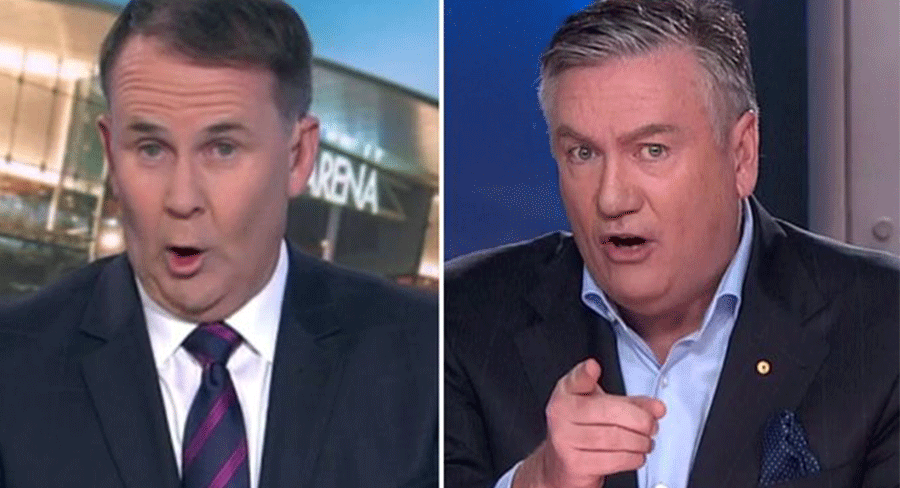
Jones replied: “I am not trying to get a headline, I am trying to get an answer.” As Jones tried to wind up the interview saying they were out of time, McGuire accused him of making it sound like clubs were taking money out of peoples’ pockets. “Don’t wind me up with a smartass last line.”
Photo: 9News
Eddie McGuire fires back after on-air clash with Tony Jones
McGuire, hosting Channel 9’s Footy Classified last night, said Jones “rightly” asked questions about possible membership refunds for people who are doing it tough.
McGuire, who is also the Collingwood Football Club president, said: “You ring your club, they’ll look after you, they always do, because the football club is owned by the members.
“It’s not owned by private industry, it’s not some oligarch sitting over the top counting the money and diving into their swimming pool like Scrooge McDuck.
“To Tony’s point, yeah, there are people who are going bad at the moment. If there is a run on the clubs, and I’ll be perfectly honest about this, then we don’t have to worry about the $600 million the banks are gonna give us, because it’ll be all over.”
